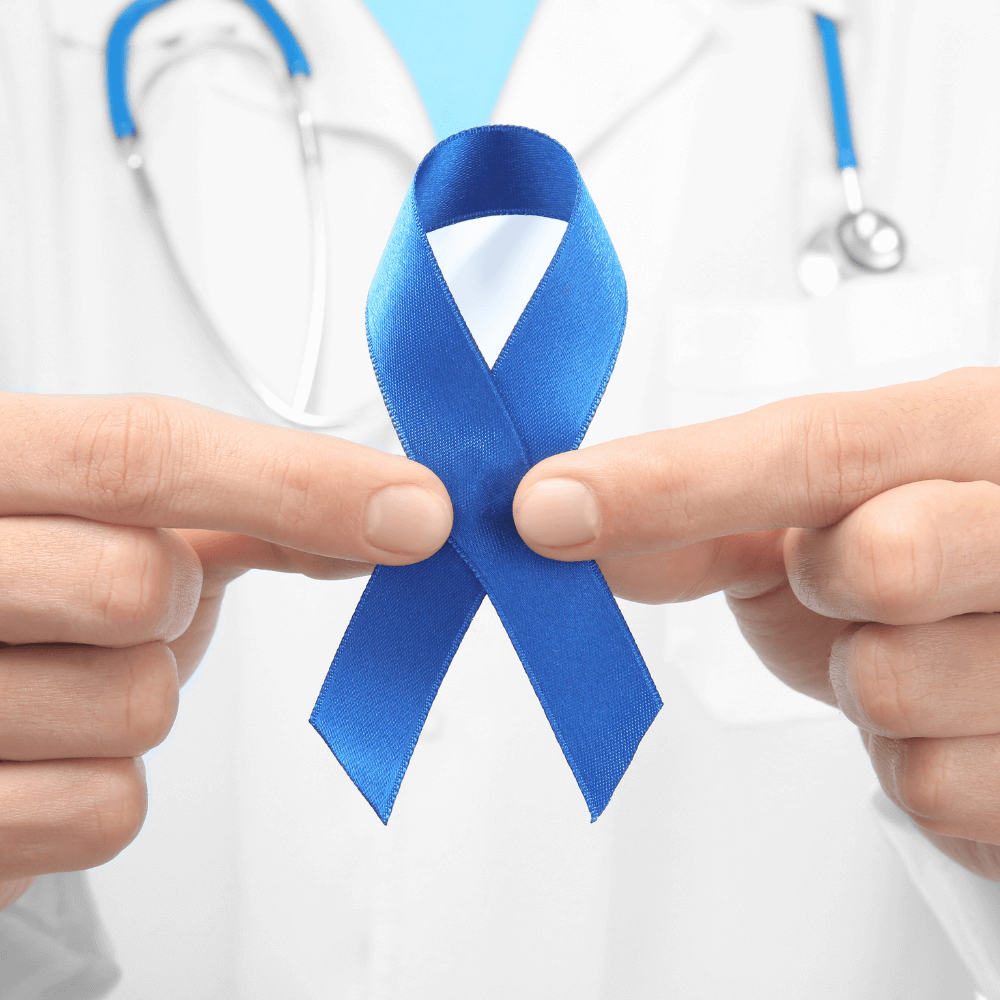Colorectal cancer: symptoms, causes
and screening for Mars Bleu 2023

Colorectal cancer is one of the most common cancers in France, which is curable if detected early. Let's be actors together in its prevention and screening, and take advantage of Blue Mars 2023 to communicate around us
Key figures for colorectal cancer in France
Colon cancer is the 2nd deadliest cancer in France in men…
Both men and women have a 9 out of 10 chance of being cured of colorectal cancer if detected early.


What are the symptoms of colon cancer?
How does colorectal cancer develop?
Colon cancer risk factors
3 warning signs of colorectal cancer
The most common symptoms that may indicate colon cancer are:
- constipation interspersed with diarrhea
- nausea
- abdominal pain
Colon cancer screening
We are mobilizing for Blue Mars 2023
Mars Bleu is colorectal cancer prevention and screening month in France. The name “Blue March” echoes Pink October for breast cancer. For Mars Bleu 2023, Medisur is mobilizing and supporting health players in pharmacies and in business. The goal ? Make people talk ever louder about colorectal cancer, raise public awareness.



Blue March in business
Numbers: cancer@work
Medisur supports companies in setting up health prevention plans for employees, on the occasion of March 2022 and throughout the year elsewhere. Depending on the size and needs of the company, this support takes the form of awareness days, workshops and conferences led by health professionals, or even webinars.

